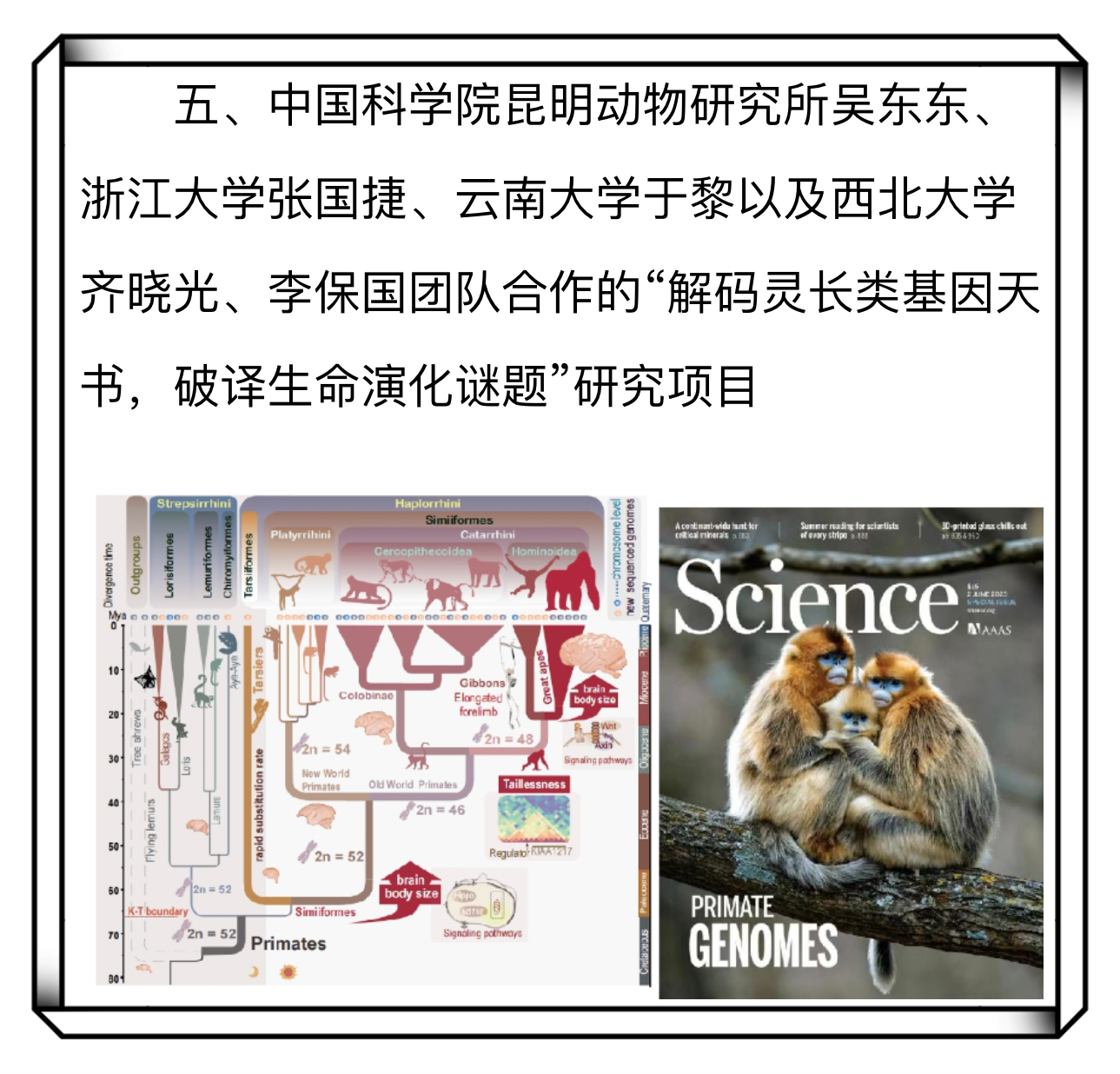Recently, the Chinese Association for Science and Technology (CAST) Life Science Society Consortium announced the Top 10 Advances in Life Science in China in 2023, and the joint project “Decoding the primate gene book and deciphering the mystery of life evolution” completed by the team of Prof. Qi Xiaoguang and Prof. Li Baoguo from the School of Life Sciences of Northwest University, together with the team of Prof. Wu Dongdong from Kunming Institute of Zoology of the Chinese Academy of Sciences, the team of Prof. Zhang Guojie from the Center for the Research on the Evolution of Life of Zhejiang University, the team of Prof. Yu Li from Yunnan University, and the team of Prof. Liu Jianquan from Sichuan University, has been selected.
Professor Qi Xiaoguang’s team, in collaboration with many research institutes at home and abroad, found that the social system evolution of the Chinchilla taxon among Asian langurs underwent a two-step aggregation process by integrating multiple disciplines, including ecology, geology, behavior, and evolutionary genomics, and that the two aggregations were associated with the Ice Age period through phylogenetic analyses and the reconstruction of the ancestral state of social system. During this process, genes associated with cold acclimation and neurohormones, which play a key role in social bonding, were vocalized and changed in the Chinchilla taxon. Among them, changes in dopamine and oxytocin pathway-related genes facilitated prolonged petting behavior and increased infant survival in cold-region odd-nosed monkeys, thereby increasing individual friendly behavior and tolerance, which in turn contributed to the aggregation of single-family groups into a heavy social stratum.
This result was verified by in vitro cellular experiments and behavioral analyses. This series of evidence suggests that cold adaptation promotes the evolution of social systems in Asian colobine primates, and provides the first complete analysis of the origin and evolution of primate social systems and their genomic basis, which provides a new paradigm for the analysis of the genetic mechanisms of behavioral evolution in more taxa and for the understanding of the social evolution of our closest relatives, non-human primates. We are the first and corresponding author of Adaptations to a cold climate promoted social evolution in Asian colobine primates, and the co-corresponding author of Phylogenomic analyses provide insights into primate behavioral evolution, were published in Science as one of the 8 results (4 in China) of the Special Issue on Primate Genomes.
